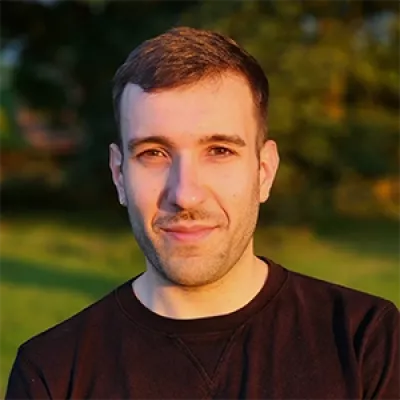Raffaele Ippolito
Research Affiliate
Research Affiliate
Academic Profile
Raffaele is a postdoctoral researcher examining the everyday experiences of industrial pollution, illness, and justice in heavily contaminated sites. Funded by the Wellcome Trust and Horizon Europe, his research sits at the intersection of science and technology studies, medical anthropology, and environmental justice. Raffaele completed his DPhil at the School of Geography and the Environment in 2024. He holds a BA in Social Anthropology and Development Studies from SOAS, University of London, and an MSc in Global Health from Taipei Medical University. He has extensive experience working at the intersection of academia and international development on issues of social justice, environmental health and gender equality, including collaborations with the United Nations Environment Programme (UNEP), the World Health Organization (WHO), and the United Nations University (UNU).
Raffaele is particularly interested in alternative perspectives on environmental justice in marginalised communities. Using ethnography and participatory methods, he seeks to uncover aspirations and experiences of health and justice that are often overlooked by conventional approaches to environmental issues. Additionally, Raffaele’s work explores how environmental and public health issues are constructed in digital societies, particularly in the context of large Artificial Intelligence projects.
Current Research
MISTRAL - a toolkit for dynaMic health Impact analysiS to predicT disability-Related costs in the Aging population based on three case studies of steeL-industry exposed areas in Europe
This interdisciplinary project (2023-2026), funded by the EU funding programme Horizon Europe (EU grant agreement ID 101095119) and UK Research and Innovation (UKRI), combines epidemiology, biology, medicine, geography, and anthropology with researchers based in Italy, the UK, Belgium and Poland. It aims to develop a technological toolkit to predict the health impact of health-related features, forecasting the trajectories of disability and quality of life reduction. This method will use environmental, socio-economic, geographical, and clinical characteristics. The generated models will be adjusted for lifestyle and individual conditions data sourced from large population-based digital surveys. The models will be trained and validated on three different exposures to the steel plants' pollution: Taranto in southern Italy, Rybnik in Poland, and Flanders in Belgium. At the University of Oxford, our project team (including Prof Anna Lora-Wainwright, Dr Maaret Jokela-Pansini and Prof Beth Greenhough) are responsible for the social science part of the project.
Toxic Justice: An ethnography of industrial pollution, environmental advocacy, and suspended damage in Italy and Taiwan
Raffaele’s doctoral research is a critical ethnography of two heavily polluted communities in Taranto, Italy, and Kaohsiung, Taiwan. Based on participatory research conducted between 2020 and 2022, Raffaele highlights the forms of knowledge production among community members who are either not involved with or reject the claims of environmental advocacy groups. His project explores how notions of 'environment' and 'justice' are co-produced at the crossroads of historical, scientific, institutional, and interpersonal trajectories. Understanding how these communities make sense of their polluted environments is fundamental to grasping their political aspirations and their place within local and global narratives of environmental justice.
Raffaele's thesis introduces the concept of 'toxic justice' to emphasize the need for a framework that reconciles the contradictions arising when conventional environmental justice scholarship intersects with alternative epistemologies centered around industrial chemicals. 'Toxic justice' challenges the neoliberal foundations of knowledge-making and valuation in environmental justice. It invites diverse community epistemologies to produce alternative aspirations for the world. By promoting a political grammar where contrasting claims and pursuits can coexist, 'toxic justice' aims to strengthen communities divided by industrial pollution.
Teaching and Supervision
Raffaele supervises MSc students at the School of Geography and the Environment on themes of environmental justice, health, Italy and Taiwan. He teaches on the Environmental Justice module and the Politics, Society and Culture of China module.
Selected Publications
Journal Articles
- Ippolito, R., Sale, C., Jokela-Pansini, M. (forthcoming) Intergenerational biographies: narratives of consciousness and contestation. Biosocieties.
- Jokela-Pansini, M., Ippolito, R., Greenhough, B., and Lora-Wainwright, A. (2024) Creating safety amidst chronic contamination: A mixed-method analysis of residents' experiences in a Southern Italian steel town. Social Science and Medicine, 349: 116866.
- Ippolito, A.R. (2022) Toxicities that matter: Slow bureaucracy and polluting temporalities in a southern Italian city. Environment and Planning C: Politics and Space, 42(1): 31-44.
- Ravindran, T.K.S., Ippolito, A.R., Atiim, G., and Remme, M. (2021) Institutional gender mainstreaming in health in UN Agencies: Promising strategies and ongoing challenges. Global Public Health, 17(8): 1551-1563.
Book Chapters
- Ippolito, A.R. (forthcoming) "Protests are of no use here": industrial exposure, damage-based advocacy and hopeful pessimism. In, Barry, A., Gibbon, S. (eds.) Chemical Exposures. UCL Press, London.
- Ippolito, A.R. (2023) Beyond Protest - The Moral Struggle of Industrial Pollution in Taranto, Italy. In Bonneuil, C. (ed.) Vivre et lutter dans un monde toxique. Violence environnementale et santé à l’âge du pétrole. Le Seuil, Paris.





